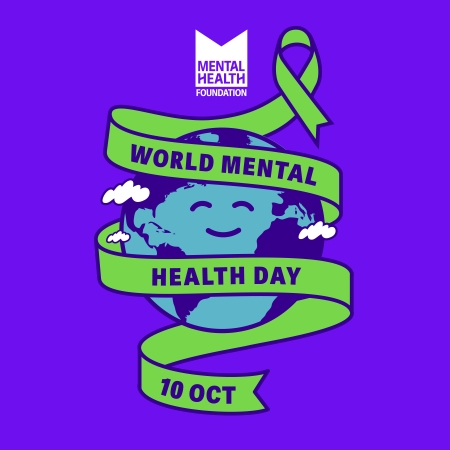
NHS South Yorkshire is supporting this year’s World Mental Health Day, which is celebrated every year on 10 October.
This year’s theme set by the World Federation of Mental Health is workplace mental health. The theme highlights the importance of addressing mental health and wellbeing in the workplace, for the benefit of people, organisations, and communities.
Work can have a huge impact on our mental health. It can be good for our mental health, giving us a sense of purpose, boosting our self-worth, and providing opportunities to connect with others. But it can also be a source of stress and anxiety and contribute to developing or worsening mental health problems.
Many people spend a lot of their time working, whether that’s in the community, in an office, in a workshop, at home, or in many other workplaces. That’s why it’s so important that our workplace supports our mental health, helping us get the mental health benefits of work while reducing the negative impact.
When our work lives become overwhelming, we can experience a range of problems such as feeling withdrawn, unmotivated and unfocused. Often, these feelings can lead to one of two extremes: overworking or taking more time off work.
- 15% of UK workers are estimated to have a mental health condition.
- 1/3 of managers feel out of their depth supporting their team with mental health concerns.
- Around 51% of long-term sickness is due to anxiety, stress and depression.
It’s important to take a proactive approach to managing your mental health & wellbeing including practicing self-care and seeking support when you need it.
If you or someone else is in danger, call 999 or go to A&E now.
If you need help urgently for your mental health, but it’s not an emergency, get help from NHS 111 online or call 111 and select the mental health option, or contact one of the organisations below to get support straight away.
Your mental health is as important as your physical health. You will not be wasting anyone’s time.
If you do not require urgent support but are still concerned about your mental health, contacting your GP is a good place to start.
It’s important to seek help from your GP immediately if you are experiencing the following symptoms for the first time or are not already receiving care from mental health services:
- hallucinations – hearing or seeing things that are not there (for example, hearing voices); this can also include feeling, smelling or tasting things that are not there
- delusions – having strong beliefs that are not shared by others (for example, believing there is a conspiracy against you)
These are symptoms of psychosis and it’s important to get treated as soon as possible, as early treatment is more effective.
If you live in England and are registered with a GP, in most areas you can refer yourself for free, non-urgent NHS talking therapies.
These are effective and confidential treatments delivered by fully trained and accredited NHS practitioners. They can help with common mental health problems like stress, anxiety and depression.
Samaritans
When life is tough, Samaritans are here to listen at any time of the day or night. You can talk to them about anything that’s troubling you, no matter how difficult:
Shout 85258
Shout 85258 offers confidential 24/7 crisis text support for times when you need immediate assistance:
- text “SHOUT” to 85258
- visit Shout Crisis Text Line
Papyrus
If you’re under 35 and feel that life is not worth living any more, Papyrus’s HOPELINE247 is available 24 hours a day, every day of the year:
- call HOPELINE247 on 0800 068 41 41
- text 07786 209697
- visit the Papyrus website
Childline
If you’re under 19, you can also speak to Childline. The number will not appear on your phone bill:
CALM
CALM is the Campaign Against Living Miserably, for people in the UK who are down or have hit a wall for any reason:
- call 0800 58 58 58 (daily, 5pm to midnight)
- free, anonymous webchat with trained CALM staff
- visit the CALM website
Hub of Hope
No matter what you’re going through, you should not have to do it alone. The Hub of Hope is a national database that brings together local mental health services. Find support near you now